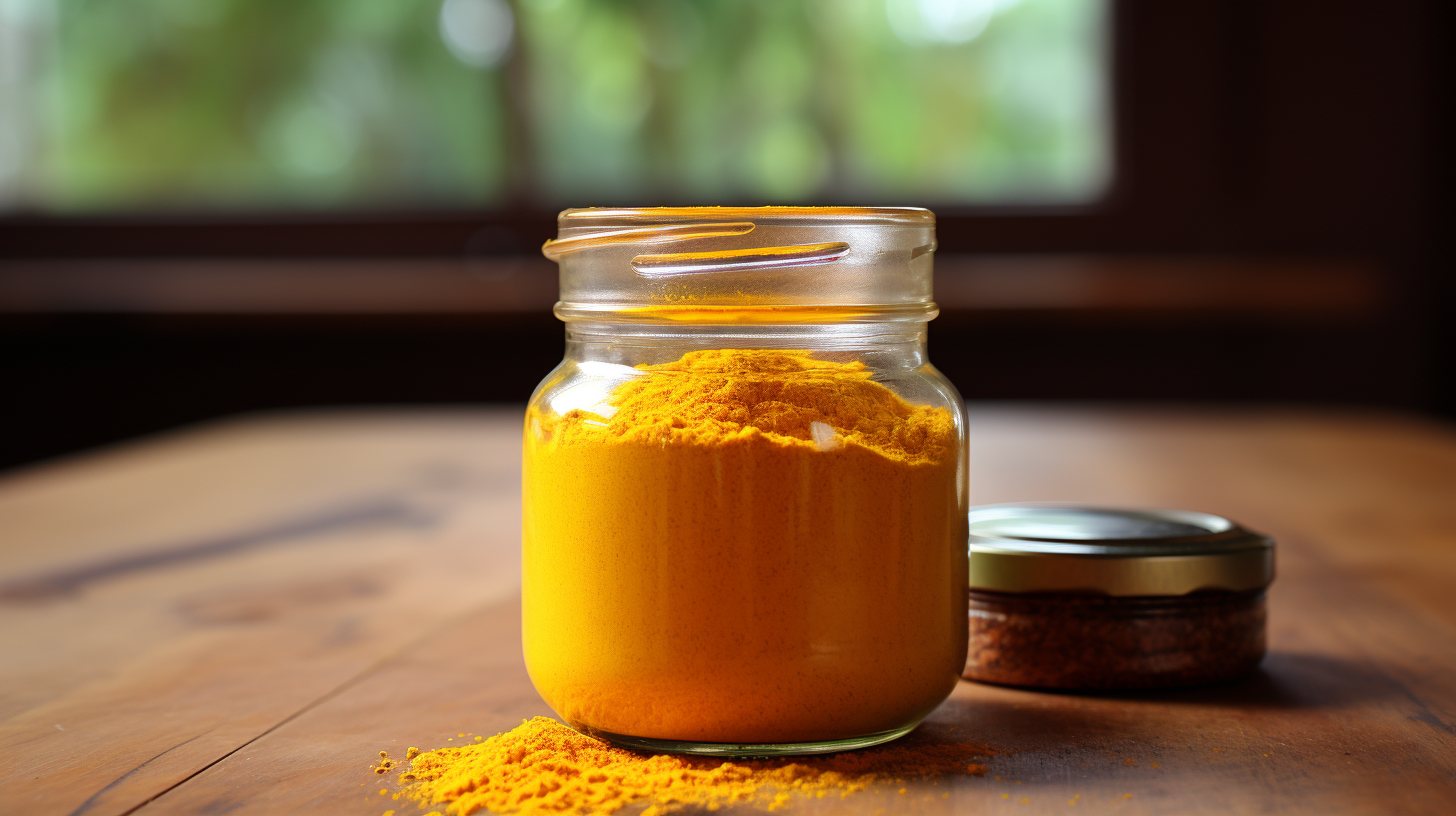The Immunity Boosting Perks Of Zinc
When it comes to supporting your immune system, zinc plays a crucial role. This essential mineral offers a range of benefits that can help boost your immune health and protect you from illnesses and infections. Whether through zinc-rich foods or supplements, incorporating zinc into your daily routine can provide significant advantages for your overall well-being.
So what exactly are the perks of zinc when it comes to immunity? Let’s dive in and explore the incredible benefits that this mineral brings to the table.
Key Takeaways:
- Zinc is a vital mineral that can contribute to a stronger immune system.
- Incorporating zinc-rich foods or supplements into your routine can help boost immune health.
- Zinc deficiency can have adverse effects on immune function.
- Consuming a variety of zinc-rich foods can help fortify your immune system.
- Zinc supplements can provide an added boost to your immune system under proper guidance.

Understanding Zinc and Its Role in Immune Support
In this section, we will delve into the importance of zinc in supporting the immune system. Zinc plays a crucial role in immune function, helping your body defend against harmful pathogens and infections.
Zinc is essential for the normal development and function of immune cells, such as white blood cells, which are responsible for fighting off infections. It helps regulate the production of immune cells and aids in their communication, ensuring a well-coordinated immune response.
Additionally, zinc acts as an antioxidant, which means it helps protect your cells from damage caused by harmful free radicals. This antioxidant property of zinc further contributes to its immune-boosting effects.
“Zinc is a powerful ally when it comes to bolstering your immune system. Its role in immune function and antioxidant activity makes it a key nutrient for supporting overall immune health.”
– Dr. Emily Cooper, Immunologist
Research has shown that zinc deficiency can impair immune function and increase the risk of infections. Conversely, maintaining optimal zinc levels through a balanced diet or supplementation can bolster your immune system and reduce the likelihood of falling ill.
The Benefits of Zinc for Immune Function
Let’s take a closer look at the specific benefits of zinc for immune function:
- Enhanced Immune Cell Function: Zinc supports the development and function of immune cells, ensuring an effective immune response.
- Inflammation Reduction: Zinc has anti-inflammatory properties that help regulate immune responses and reduce inflammation, promoting overall immune health.
- Improved Antioxidant Defense: As an antioxidant, zinc helps protect cells from oxidative stress, supporting the immune system in combating infections.
Incorporating zinc-rich foods into your diet or considering zinc supplements can provide the necessary support for your immune system to function optimally. Let’s now explore the connection between zinc and immune response in more detail in the next section.
The Link Between Zinc and Immune Response
Explore the relationship between zinc and the immune response in this section. Understand how zinc aids in the body’s defense against infections and enhances the immune system’s ability to respond effectively.
Zinc plays a vital role in supporting immune function by promoting the development and activation of immune cells. It acts as a catalyst for various enzymatic reactions involved in immune response, including the production of antibodies and the regulation of inflammation.
Research has shown that zinc deficiency can impair immune function, making individuals more susceptible to infections. On the other hand, adequate zinc intake can bolster the immune system and improve the body’s ability to fight off pathogens.
One of the key benefits of zinc for immune response is its ability to enhance the activity of natural killer cells, which play a crucial role in identifying and eliminating virus-infected cells. Zinc also helps regulate the production and function of cytokines, which are signaling molecules involved in the immune response.
The Role of Zinc in Acute Respiratory Infections
Zinc has been extensively studied in the context of acute respiratory infections, including the common cold and pneumonia. Evidence suggests that zinc supplementation can reduce the severity and duration of these respiratory illnesses.
Studies have shown that zinc lozenges, when taken at the onset of cold symptoms, can help shorten the duration of the cold and alleviate symptoms. Zinc’s antiviral properties and its ability to reduce inflammation contribute to its effectiveness in combating respiratory infections.
“Zinc is a valuable micronutrient that supports immune function and plays a key role in the body’s fight against infections.”
Zinc and Immune Health in Aging
As we age, our immune system naturally undergoes changes, leading to a decline in immune function. This age-related decline, known as immunosenescence, makes older adults more susceptible to infections and chronic diseases.
Zinc supplementation has shown promise in improving immune health in older adults. It can enhance immune cell activity and increase the production of antibodies, helping to strengthen the immune response in this vulnerable population.
The Zinc-Immunity Connection
- Zinc plays a crucial role in supporting immune function and response.
- It aids in the body’s defense against infections and enhances the activity of immune cells.
- Zinc deficiency can weaken immune function, while adequate intake can bolster it.
- Supplementing with zinc may help reduce the severity and duration of respiratory infections.
- Older adults can benefit from zinc supplementation to improve immune health.
| Immune Response | Key Insights |
|---|---|
| Enhances natural killer cell activity |
Helps the immune system identify and eliminate virus-infected cells. |
| Regulates cytokine production | Influences production and function of cytokines, key signaling molecules in the immune response. |
| Reduces severity of respiratory infections |
Zinc supplementation can alleviate symptoms and shorten respiratory illnesses. |
| Improves immune health in aging |
Enhances immune cell activity and antibody production in older adults. |
Zinc Deficiency Symptoms and Risks
Understanding the symptoms and risks associated with zinc deficiency is crucial for maintaining optimal immune health and overall well-being. When your body lacks sufficient zinc, it can compromise your immune system’s ability to function effectively, leaving you more susceptible to various illnesses and infections.
Here are some common symptoms that may indicate a zinc deficiency:
- Slow wound healing
- Frequent infections
- Loss of appetite
- Weight loss
- Weakness and fatigue
- Hair loss
- Impaired sense of taste and smell
- Delayed growth and development in children
Furthermore, inadequate zinc levels can pose several risks to your immune health. Without enough zinc, your body may struggle to produce and activate immune cells, weakening your ability to fight off pathogens. Zinc deficiency can also impair the function of key immune system components, such as natural killer cells and T-cells, hampering your immune response.
Research suggests that zinc deficiency may contribute to increased susceptibility to infections, including respiratory infections, diarrhea, and even more severe conditions like pneumonia.
To effectively maintain and support your immune system, it’s essential to address any potential zinc deficiency. By incorporating zinc-rich foods into your diet or considering zinc supplements under the guidance of a healthcare professional, you can help ensure your body has the necessary levels of this vital mineral for immune function.
| Zinc-Rich Foods | Zinc Content per 100g |
|---|---|
| Oysters | 78.6mg |
| Beef | 8.7mg |
| Crab | 6.5mg |
| Lobster | 4.1mg |
| Pumpkin Seeds | 7.6mg |
| Cashews | 5.6mg |
By being aware of the zinc deficiency symptoms and taking proactive measures to address potential deficiencies, you can help safeguard your immune health and enjoy the many benefits that zinc offers.

Boosting Immune Health with Zinc-Rich Foods
To fortify your immune system and support overall health, incorporating zinc-rich foods into your diet is essential. These nutritious foods provide a natural source of zinc, helping you meet your daily requirements for this vital mineral. Discover a variety of fruits, vegetables, and other sources that are excellent additions to your meals to ensure you’re getting an ample amount of zinc.
Zinc-rich foods offer numerous benefits for immune health. This powerful mineral plays a crucial role in strengthening your immune system and enhancing its ability to fight off infections. By including these foods in your diet, you can boost your body’s natural defense mechanisms and promote overall well-being.
Start incorporating these zinc-rich foods into your meals:
- Shellfish: Oysters, crab, and lobster are excellent sources of zinc.
- Meat: Beef, pork, and lamb are rich in zinc.
- Poultry: Chicken and turkey provide zinc as well.
- Legumes: Chickpeas, lentils, and beans are plant-based sources of zinc.
- Nuts and seeds: Almonds, cashews, pumpkin seeds, and sesame seeds contain zinc.
- Whole grains: Brown rice, quinoa, and oats are zinc-rich grains.
- Dairy products: Milk, cheese, and yogurt also contribute to your zinc intake.
- Fruits and vegetables: Some fruits and vegetables contain small amounts of zinc, including bananas, strawberries, avocados, spinach, and mushrooms.
Incorporating a variety of these foods into your daily meals will help ensure that you’re getting sufficient zinc to bolster your immune system and maintain optimal health.
The Role of Zinc Supplements in Immune Support
Discover how zinc supplements can provide an added boost to your immune system. Zinc is a vital mineral that plays a crucial role in supporting immune function and overall health. While a well-balanced diet rich in zinc-containing foods is essential, supplements can help ensure you’re meeting your daily requirements and maintain optimal immune function.
Zinc Immunity Benefits:
– Supports the production of immune cells and antibodies
– Enhances the function of white blood cells, the frontline defenders against pathogens
– Helps regulate inflammatory responses in the body
When it comes to choosing the right zinc supplement, there are a few options available:
- Zinc Gluconate: This form of zinc is easily absorbed by the body and is commonly found in over-the-counter supplements. It provides a decent dose of zinc to support immune health.
- Zinc Picolinate: Known for its high bioavailability, zinc picolinate is easily absorbed and utilized by the body, making it an effective option for immune support.
- Zinc Acetate: This form of zinc is often used in lozenges or throat sprays to support the immune system during cold and flu season. It can help soothe a sore throat and reduce the duration of symptoms.
It’s important to remember that the dosage and duration of zinc supplementation should be discussed with a healthcare professional. They can help determine the appropriate dosage based on your individual needs and advise on potential interactions with medications or existing health conditions.
“Zinc supplements provide an additional layer of immune support, especially during periods of increased vulnerability or when dietary zinc intake may be insufficient.”
In addition to supplements, it’s essential to maintain a well-rounded diet that includes zinc-rich foods such as:
- Shellfish – oysters, crab, and mussels
- Meat – beef, pork, and lamb
- Poultry – chicken and turkey
- Legumes – chickpeas, lentils, and beans
- Nuts and seeds – pumpkin seeds, cashews, and almonds
- Whole grains – quinoa, brown rice, and fortified cereals
- Dairy products – milk, cheese, and yogurt
- Fruits and vegetables – avocados, spinach, and mushrooms
By incorporating zinc supplements and zinc-rich foods into your routine, you can give your immune system the extra support it needs to stay strong and resilient.

Zinc and Cold Prevention
When it comes to cold prevention, zinc has gained attention for its potential effectiveness in reducing both the duration and severity of cold symptoms. Several studies have explored the relationship between zinc and the common cold, shedding light on its immune-boosting properties.
Research suggests that zinc may interfere with the replication of the cold virus, inhibit its attachment to the nasal mucosa, and stimulate the production of antiviral proteins. These mechanisms can help reduce the intensity and duration of cold symptoms, potentially leading to quicker recovery and improved overall well-being.
While zinc supplementation has shown promise in cold prevention, it’s worth noting that its effectiveness may vary among individuals. Factors such as the type and dosage of zinc, as well as the timing of supplementation, can influence outcomes.
“Zinc has been extensively studied for its potential in reducing the severity and duration of cold symptoms. It may interfere with viral replication and attachment, enhancing the body’s immune response.”
Zinc and the Common Cold: Key Findings
- Several studies have demonstrated a correlation between zinc supplementation and reduced cold duration.
- Some research suggests that taking zinc within 24 hours of cold symptoms can lead to milder symptoms and faster recovery.
- Zinc lozenges or nasal sprays may be more effective in reducing cold symptoms compared to oral zinc supplements.
- It’s essential to follow proper dosage guidelines and consult with a healthcare professional before starting any new supplementation regimen.
Zinc and Immune Function in Specific Populations
Understanding how zinc impacts immune function in specific populations is essential for tailoring immune support strategies. Different age groups and individuals with compromised immune systems may require special attention when it comes to zinc intake. Let’s explore the benefits of zinc for immune function in children, the elderly, and those with compromised immune systems.
Benefits of Zinc for Children
As children grow and develop, their immune systems require adequate support to combat infections and promote overall health. Zinc plays a crucial role in supporting their immune function and ensuring optimal growth. Some key benefits of zinc for children’s immune health include:
- Strengthening the immune response to common illnesses
- Enhancing wound healing and tissue repair
- Supporting healthy growth and development
It’s important for parents to ensure their children receive sufficient zinc through a balanced diet or supplementation under the guidance of a healthcare professional.
Zinc and Immune Support for the Elderly
As individuals age, their immune systems may naturally decline, making them more susceptible to infections and illnesses. Zinc can play a vital role in supporting immune function in the elderly. The benefits of zinc for immune health in this population include:
- Enhancing immune response to fight off infections
- Reducing the risk of respiratory infections
- Promoting the healing of wounds and preventing bedsores
Incorporating zinc-rich foods or supplements into the diet of elderly individuals can help strengthen their immune system and improve overall well-being.
Zinc and Supporting Compromised Immune Systems
Individuals with compromised immune systems, such as those with autoimmune diseases or undergoing cancer treatment, require additional immune support. Zinc can offer potential benefits in these cases. The ways in which zinc supports immune function in individuals with compromised immune systems include:
- Enhancing the function of immune cells
- Reducing inflammation and oxidative stress
- Supporting the healing process after treatments
It’s essential for individuals with compromised immune systems to consult with their healthcare providers to determine the appropriate dose and form of zinc supplementation for their specific needs.
| Population | Benefits of Zinc for Immune Function |
|---|---|
| Children |
|
| Elderly |
|
| Those with compromised immune systems |
|
Dosage and Safety Considerations for Zinc
When it comes to reaping the full immunity-boosting benefits of zinc, it’s crucial to understand the appropriate dosage and prioritize safety. Whether you choose to incorporate zinc through dietary sources or supplements, following these guidelines will help you optimize your immune health.
Recommended Zinc Dosage for Immune Support
The recommended daily intake of zinc varies depending on age, gender, and overall health. The National Institutes of Health (NIH) provides the following guidelines:
| Age Group | Recommended Daily Zinc Intake |
|---|---|
| Infants 0-6 months | 2 mg |
| Infants 7-12 months | 3 mg |
| Children 1-3 years | 3 mg |
| Children 4-8 years | 5 mg |
| Children 9-13 years | 8 mg |
| Males 14 years and older | 11 mg |
| Females 14-18 years | 9 mg |
| Females 19 years and older | 8 mg |
| Pregnant females 14-18 years | 13 mg |
| Pregnant females 19 years and older | 11 mg |
| Breastfeeding females 14-18 years | 14 mg |
| Breastfeeding females 19 years and older | 12 mg |
Note: These recommendations are general guidelines. If you have specific health conditions or concerns, it’s best to consult with a healthcare professional for personalized advice.
Safety Considerations
While zinc is considered safe for most individuals when taken within recommended doses, it’s important to be cautious and mindful of potential side effects. Excessive zinc intake may lead to adverse reactions, including digestive issues and decreased copper absorption.
Here are some safety considerations for zinc supplementation:
- Stick to the recommended dosage to avoid consuming too much zinc, which can be counterproductive and potentially harmful.
- If you’re taking other medications or have existing health conditions, consult with a healthcare professional before starting zinc supplements.
- Avoid taking zinc supplements on an empty stomach, as this may cause nausea or digestive discomfort.
- Consider incorporating zinc-rich foods into your diet as a natural source of this essential mineral.
Remember, moderation is key when it comes to zinc supplementation. Adhering to the recommended dosage and seeking professional advice will help ensure you reap the benefits while maintaining your overall well-being.

Conclusion
In conclusion, zinc plays a crucial role in boosting your immune health. By incorporating zinc into your daily routine, whether through a balanced diet rich in zinc-containing foods or the use of supplements under proper guidance, you can fortify your immune system and protect your overall well-being.
One of the key benefits of zinc for immune function is its ability to support the body’s natural defense mechanism against illnesses and infections. By enhancing the immune response, zinc helps your body fight off harmful pathogens more effectively.
Recognizing the symptoms of zinc deficiency is essential for maintaining optimal immune health. Inadequate zinc levels can compromise your immune system and leave you susceptible to various health issues. Therefore, it is crucial to prioritize zinc-rich foods or supplements to ensure you are meeting your body’s zinc requirements.
Studies have also shown the potential of zinc in preventing and reducing the duration and severity of cold symptoms. Zinc’s anti-viral properties make it a valuable addition to your cold prevention and management strategies.
Overall, incorporating zinc into your lifestyle can significantly benefit your immune system. Prioritize zinc to unlock its immune-boosting perks and enjoy a stronger defense against illnesses and infections. Take care of your immune health by prioritizing zinc-rich foods and supplements, and give your body the support it needs to thrive.
FAQ
What are the benefits of zinc for immune function?
Zinc plays a crucial role in supporting immune function. It helps regulate the immune system’s response to pathogens and promotes the production of immune cells and antibodies. Additionally, zinc aids in wound healing and reduces inflammation, further supporting a healthy immune system.
How can zinc supplements boost immune health?
Zinc supplements can provide an additional boost to your immune system. They help fill in any nutritional gaps and ensure that you’re getting an adequate amount of zinc to support immune function. However, it’s important to follow dosage guidelines and consult with a healthcare professional before starting any supplement regimen.
What are some zinc-rich foods that can help boost immunity?
Incorporating zinc-rich foods into your diet can help strengthen your immune system. Some excellent sources of zinc include lean meats, seafood, dairy products, legumes, nuts, and seeds. It’s important to maintain a balanced diet that includes these foods to ensure you’re getting enough zinc.
What are the symptoms of zinc deficiency and the associated risks?
Zinc deficiency can manifest in various symptoms such as increased susceptibility to infections, delayed wound healing, loss of appetite, hair loss, and impaired sense of taste or smell. Inadequate zinc levels can negatively impact immune health, growth and development, and overall well-being.
How does zinc enhance immune response?
Zinc is involved in several immune response mechanisms. It helps activate immune cells, supports the production of antibodies, and aids in the regulation of inflammation. By enhancing these processes, zinc contributes to a stronger and more effective immune response.
Can zinc help prevent and reduce the severity of the common cold?
There is some evidence suggesting that zinc supplementation may help reduce the duration and severity of cold symptoms. Zinc lozenges, in particular, have been studied for their potential effectiveness in alleviating cold symptoms. However, more research is needed to fully understand zinc’s role in cold prevention and treatment.
How does zinc affect immune function in specific populations, such as children and the elderly?
Zinc is especially important for the immune function of specific populations, including children and the elderly. Adequate zinc intake is crucial for normal growth and development in children, while zinc supplementation has been shown to support immune health in the elderly and improve their resistance to infections.
What are the dosage and safety considerations for zinc supplementation?
The appropriate dosage of zinc for immune support varies depending on age, sex, and overall health. It’s important to consult with a healthcare professional to determine the right dosage for your specific needs. Additionally, excessive zinc intake can have adverse effects, so it’s crucial to follow recommended guidelines and avoid exceeding the upper limits of zinc intake.
































